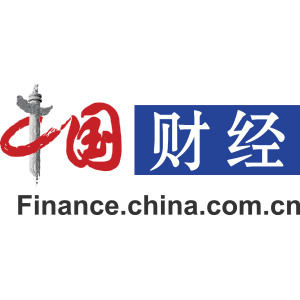On the evening of February 25th, Beijing time, “Stock God” Warren Buffett released his annual shareholder letter.
Every February, Buffett will write a letter to review his investment gains and lessons in the past year. This letter to shareholders attached to the annual report of Berkshire Hathaway has been regarded as the most important by investors. Provides the “Bible” of value investing.
“The most outstanding thing about this letter is its brevity-only 4,455 words, which is the shortest shareholder letter by Buffett in 44 years.” A Bloomberg column wrote.
very humble
Buffett, arguably one of the most famous living U.S. investors, has appeared cautious and even apologetic about his difficulties navigating the market, multiple observers said, according to Reuters.
“This retrospective involves acknowledging many mistakes, which has become a Buffett trademark. His 25th anniversary commentary was even titled “Mistakes of the First 25 Years (Condensed).” The latest letter also includes a slur of the word ‘mistake’.” Four times, compared to the total word count of the letter, which is a lot by Buffett’s standards.” wrote Bloomberg’s op-ed.
According to Forbes magazine, Buffett’s net worth of US$106 billion ranks fifth in the world.
“Buffett was unnecessarily humble in assessing his own investing abilities,” said Thomas Russo, a partner at Gardner Russo & Quinn and a longtime Berkshire investor. profit.”
The S&P 500 Index in 2022 will be the worst year since the financial crisis, under the impact of multiple unfavorable factors such as economic recession fears caused by the Fed’s continuous interest rate hikes, soaring inflation, and geopolitical turmoil. Against this backdrop, the S&P 500 Index fell 18.1% (including dividends), while Berkshire estimates a positive return of 4%, outperforming the S&P 500 Index by 22.1 percentage points.
In the long run, from 1965 to 2022, the compound annual growth rate of Berkshire’s market value per share, also known as the annualized rate of return, was 19.8%, significantly exceeding the 9.5% of the S&P 500 Index. From 1964 to 2022, Berkshire’s market capitalization growth rate was an astonishing 3,787,464%, or nearly 37,900 times. The S&P 500 index in the same period was 24,708%.
Buffett says most of his capital allocation decisions are “so-so,” and that Berkshire’s “satisfactory” performance over time has come from only about a dozen “really good” decisions.
Buffett also said that even amid the inevitable disappointments, “trust and discipline are essential to running a large business,” and urged investors not to get obsessed with recent market conditions.
Cathy Seifert, an analyst at CFRA Research, said Buffett took a “subtle jab” at critics who wanted him to disclose more paragraphs about Berkshire’s largest businesses and invest more aggressively.
“The current market environment, for lack of a better word, is very schizophrenic,” Seifert said. “Buffett is expressing that disappointment.”
Business Empires Won’t Divide
As large companies such as General Electric break up into multiple more focused businesses, Buffett has made clear that he wants his sprawling business empire to remain intact for as long as possible.
“At Berkshire, there is no finish line,” Buffett, 92, wrote in a shareholder letter.
Barron’s view is that this means that businesses such as railroads, insurance, utilities and even chocolate confectionery will not be separated from Berkshire’s large stock portfolio. “As far as the future goes, Berkshire will always hold substantial cash and U.S. Treasury bills and a broad range of businesses,” Buffett wrote.
Buffett also stated in the letter that the next CEO must hold the majority of his net worth in Berkshire stock, so that the CEO has as much incentive as Buffett himself to enrich shareholders.
Business Insider noted that Buffett emphasized his conservative, long-term focus management style and emphasized that he wants his company to survive his departure.
“We will also refrain from any reckless actions that would disrupt cash flow at critical moments, including in times of financial panic and unprecedented insurance losses. Our CEO will always be Chief Risk Officer – although he or she need not Take on that responsibility,” Buffett wrote.
In defense of buybacks and tax bills
The New York Times noted that much of the letter was devoted to defending Berkshire’s practices.
That includes share buybacks, on which Berkshire spent $7.9 billion last year. The practice has drawn criticism from political circles, who say it diverts money to Wall Street investors instead of employee pay rises or new investments.
“If anyone tells you that all buybacks are bad for shareholders or the country, or especially good for the CEO, that person is either economically illiterate or a glib demagogue (these two roles are not contradictory) ,” Buffett said in a letter to shareholders.
“He’s making fun of people who are trying to grow money without adding value,” said longtime Berkshire investor Bill Smead of Smead Capital Management.
Buffett also defended Berkshire’s federal tax bill amid criticism that he pays little in taxes relative to his total wealth, which Forbes estimates at $106 billion.
Buffett said in the letter that Berkshire paid $32 billion in federal taxes over the past decade, one-thousandth of all taxes collected by the government during that time.
“If about 1,000 U.S. taxpayers matched Berkshire’s payments, no other business or any of the country’s 131 million households would have to pay any taxes to the federal government,” Buffett wrote. Not even a dime.”
Buffett also criticized the federal government for spending far more than it taxes, and said of the ongoing debate in Washington over the debt ceiling, “there are consequences to large and entrenched fiscal deficits.”
(Editor in charge: Tan Mengtong)
Disclaimer:The purpose of reprinting this article by China Net Finance is to convey more information, and it does not represent the views and positions of this website. Article content is for reference only and does not constitute investment advice. Investors operate accordingly at their own risk.
